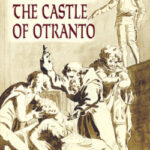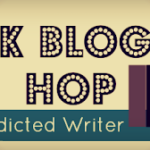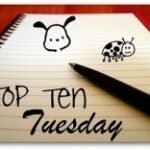As I mentioned a few days ago, I actually read many challenged or banned books in high school. I can’t decide if this is because I happened to be in a more “liberal” district, or because I was in the AP English program and all we did was read the classics (“classics” often being a synonym for “banned”). Either way, boy did I read a lot of supposedly controversial literature.
But my reading of banned books came long before high school, and has continued long after.
Charlotte’s Web – Middle school
Reasons banned: Inappropriate content (death in a children’s book).
Practically everyone has read this book, or has at least seen the film. Everyone knows that Charlotte dies. And yes, it is incredibly sad (I cry every time).
But there is so much more to E.B. White’s novel. It depicts death, but more importantly it depicts life, and the saving of life, and the continuance of life.
Instead of focusing on Charlotte’s death, I believe that teachers, parents, and readers should emphasize her compassion, spirit, and intelligence. That is, after all, the purpose of the book.
Besides, who doesn’t love Templeton?
To Kill a Mockingbird – High school
Reasons banned: Challenged in several states because use of racial slurs and the discussion/depiction of attempted rape make some uncomfortable.
In one instance where this book was challenged, the spearhead of the campaign was actually one of the students reading it: an 8th grader.
While I love Lee’s novel, I’m confused as to why a class full of 13 year-olds was reading this. I think that most 13-14 year olds would be able to handle racial slurs and discussion of rape; I also think that some of them would have trouble making the connections that the story does — it might simply be beyond some of them. So I understand not reading it in class. However, I see no harm in allowing it to reside in a school library, especially if there are older children sharing the space
But banning Mockingbird in high schools is ridiculous. The slurs and discussions of rape are meant to be shocking — it should be shocking that such things are allowed to happen, and that an innocent man is convicted (despite clear evidence that he’s innocent) and eventually killed. The entire book is about the protection of and loss of innocence, a theme that I believe many high school-aged kids would understand and identify with.
Twilight – College
Reasons banned: Has been challenged for being “unsuited to age group,” “sexually explicit,” and because of its “religious viewpoint.” Other reasons include: “too racy,” and “goes against religious beliefs.” The series is also often connected to Satanism because of its cast of supernatural characters.
I completely understand not having Breaking Dawn in a middle school library — it is by far the most graphic of the series, and not something that I would feel comfortable letting my 11 year-old read.
And yet I feel very strongly about this series. Ignoring all the hullabaloo about chauvinistic and elitist/racist themes, I think it’s a good story — who doesn’t love the idea of a love that powerful? And it nothing else, it makes for great conversations on gender roles, double standards, and a host of other things.
I think that this is a series a reader should grow with.
I read the first book in 2005, when I was a senior in high school The books were published as I aged, and by the time I read Breaking Dawn in 2008 I was in my early 20s — and well enough versed in the world to be capable of handling the more horrifying aspects of the series’ concluding novel.
The crux of the matter
I see the problem with reading some of these books in class at certain ages (elementary and most middle school-age children shouldn’t be required to read any of these books, especially unsupervised), but removing them from school libraries doesn’t help. Yanking a book from the library shelves may “protect innocent eyes,” but doing so shows older eyes that censorship is common and okay, which is definitely not true.
I think a lot of it boils down to parental involvement. My mother knew at all times exactly what I was reading, and I feel certain that if I had set upon a book she didn’t think was appropriate, she would have encouraged me to read something else. She would have at the very least sat down with me and had a discussion about the book and its content and themes.
By making sure that she knew what I was reading (even when I was in high school), my mom was able to help me avoid books and stories for which she knew I wasn’t prepared.
By being involved and guiding me, she has helped me discover the topics I love, and has taught me how to discover new stories. And that’s the best part of reading.
Did you read any of these books, at any age? Do you think parents should be more involved in what their kids are reading?





